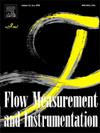基于模糊逻辑的超扭滑模控制结构在燃油调节器中的应用
IF 2.3
3区 工程技术
Q2 ENGINEERING, MECHANICAL
引用次数: 0
摘要
针对加力燃烧室燃油调节器供油波动较大的问题,提出了一种针对核心计量阀的精确控制策略。通过将伺服阀和计量阀集成到阀控液压缸系统中,建立了系统动力学传递函数模型。提出了一种混合控制框架,将超扭转滑模控制器(STC)与自适应模糊逻辑相结合,对滑模切换项进行动态调整。这种方法能够自适应干扰调节阀芯位置,确保快速跟踪参考信号,同时显著减少位移误差。模糊逻辑与滑动变量中优化指数项的集成进一步抑制了抖振现象,在不影响跟踪敏捷性的情况下增强了鲁棒性。这些进步为军用航空发动机的高精度燃油计量提供了可行的解决方案,特别是在要求严格的推力稳定性和快速动态响应的情况下。本文章由计算机程序翻译,如有差异,请以英文原文为准。
A novel super-twisting sliding mode control structure incorporating fuzzy logic for fuel regulator applications
To address the pronounced fuel supply fluctuations in afterburner fuel regulators, this study proposes a precision control strategy targeting the core metering valve. By integrating the servo valve and metering valve into a valve-controlled hydraulic cylinder system, a transfer function model is established to characterize the system dynamics. A hybrid control framework is developed, combining a super-twisting sliding mode controller (STC) with adaptive fuzzy logic to dynamically adjust sliding mode switching terms. This approach enables disturbance-adaptive regulation of the valve spool position, ensuring rapid tracking of reference signals while significantly reducing displacement errors. The integration of fuzzy logic with an optimized exponential term in the sliding variable further suppresses chattering phenomena, enhancing robustness without compromising tracking agility. These advancements provide a viable solution for high-precision fuel metering in military aeroengines, particularly in scenarios demanding stringent thrust stability and rapid dynamic response.
求助全文
通过发布文献求助,成功后即可免费获取论文全文。
去求助
来源期刊

Flow Measurement and Instrumentation
工程技术-工程:机械
CiteScore
4.30
自引率
13.60%
发文量
123
审稿时长
6 months
期刊介绍:
Flow Measurement and Instrumentation is dedicated to disseminating the latest research results on all aspects of flow measurement, in both closed conduits and open channels. The design of flow measurement systems involves a wide variety of multidisciplinary activities including modelling the flow sensor, the fluid flow and the sensor/fluid interactions through the use of computation techniques; the development of advanced transducer systems and their associated signal processing and the laboratory and field assessment of the overall system under ideal and disturbed conditions.
FMI is the essential forum for critical information exchange, and contributions are particularly encouraged in the following areas of interest:
Modelling: the application of mathematical and computational modelling to the interaction of fluid dynamics with flowmeters, including flowmeter behaviour, improved flowmeter design and installation problems. Application of CAD/CAE techniques to flowmeter modelling are eligible.
Design and development: the detailed design of the flowmeter head and/or signal processing aspects of novel flowmeters. Emphasis is given to papers identifying new sensor configurations, multisensor flow measurement systems, non-intrusive flow metering techniques and the application of microelectronic techniques in smart or intelligent systems.
Calibration techniques: including descriptions of new or existing calibration facilities and techniques, calibration data from different flowmeter types, and calibration intercomparison data from different laboratories.
Installation effect data: dealing with the effects of non-ideal flow conditions on flowmeters. Papers combining a theoretical understanding of flowmeter behaviour with experimental work are particularly welcome.
 求助内容:
求助内容: 应助结果提醒方式:
应助结果提醒方式:


